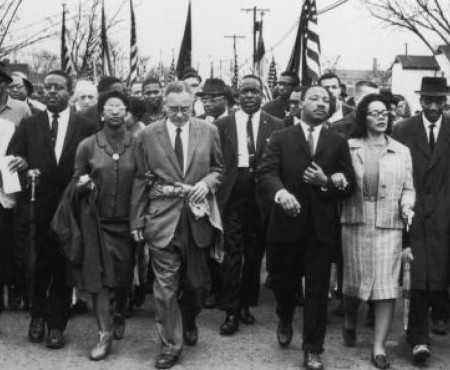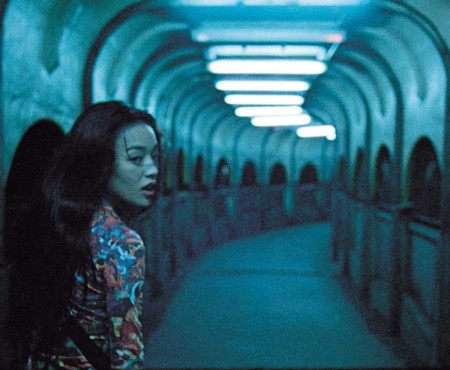Every week, With a Little Help from Our Friends highlights the best pieces of writing on film, television, and literature published around the Internet. Please share if you like what you see.
For your reading enjoyment …
“Why Can’t Movies Capture Genius?” by Clive Irving
‘Tis the season, apparently, to celebrate that strange species known as the oddball British genius. It might be accidental or it might be part of a brilliant move by the “Great British” brand’s marketing team that we have three movies, Mr. Turner, The Imitation Game and The Theory of Everything, competing in the Oscar season that are biopics featuring, respectively, the transformative Victorian artist J.W.M. Turner, the computing phenomenon Alan Turing, and the mind-blowing astrophysicist Stephen Hawking.
“J.K. Simmons and the Joy of Playing a Sadistic Teacher” by Cara Buckley
J.K. Simmons, a character actor with a 40-year career and a hound dog visage, is best known on the big screen for his roles as Juno’s dad and the Daily Bugle editor in the Tobey Maguire-era “Spider-Mans,” along with his television work on various “Law & Order” incarnations and HBO’s “Oz.” For the last seven-and-a-half years he has also voiced the yellow M&M. This year Mr. Simmons, 59, has burst to the fore and landed heaps of praise — just this weekend he swept several critics’ awards — and Oscar buzz for his performance as a ruthless, sadistic music teacher, Terence Fletcher, who inspires and devastates a young drummer, played by Miles Teller, in Damien Chazelle’s feature film “Whiplash.” So mighty is the buzz that Mr. Simmons has hired a publicist for the first time.
“On Choosing Patricia Arquette As Best Actress For Boyhood” by Devin Faraci
Who is Boyhood about? The question seems so dumb as to almost be worthless, but what if I asked you “Who is 12 Years about?” Because right up until a few months before release Boyhood was called 12 Years. The release and success of 12 Years A Slave necessitated a name change and the movie ended up taking on a different identity. This question became important to me this weekend. I was honored to take part in my first voting meeting as a member of the Los Angeles Film Critics Association (LAFCA), a truly important and storied group (their advocacy for Terry Gilliam’s Brazil actually got the movie released). Voting for year end awards is an all-day process, but not an unpleasant one, and there’s a lot of interesting strategizing that happens along the way.
“In The Imitation Game, a portrait of what bias cost England” by Alyssa Rosenberg
Gay rights movies frequently work as both art and politics by presenting viewers with sympathetic gay and lesbian characters, and then, once we feel attached to these fictional people, tallying up the ways that prejudice injures them personally. But “The Imitation Game,” a handsome new movie about Alan Turing, inventor of modern computing, and the work he did for the British at Bletchley Park to break the German Engima code during World War II, dares to suggest something grander: that the equal participation of gay people and women in public life is a matter of national self-interest.
“Paul Thomas Anderson on Trying Not to ‘F*ck Up’ Adapting Inherent Vice” by Eric Kohn
There aren’t many filmmakers who would be up for the challenge of adapting Thomas Pynchon for the big screen, but Paul Thomas Anderson isn’t like most filmmakers. Anderson, who wrote and directed “Inherent Vice” based off Pynchon’s 2009 novel, has successfully brought cinematic life to the work of a novelist for the first time in his 50 years of output. The story — a discursive tale of stoner detective Doc Sportello (Joaquin Phoenix) unraveling a dense plot involving love triangles, real estate conspiracies, fake deaths and the FBI — goes by so quickly it’s virtually impossible to follow every last detail. Of course, that’s precisely the appeal of Pynchon’s freewheeling narrative style, which Anderson captures so precisely that the movie has understandably baffled as many viewers as it has thrilled since its premiere at the New York Film Festival in September.
“Will ‘Aquaman’ Be Helmed by ‘Mud’ Director Jeff Nichols?” by Sandy Schaefer
The Sony Leak of 2014 has not only shed light on the studio’s plan-making behind closed doors, but also that of its rival studios. For example, one leaked email confirms the all-but-official news that Simon Kinberg – screenwriter on X-Men: Days of Future Past and next year’s Fantastic Four reboot – is laying the foundation for a Fantastic Four/X-Men movie crossover down the line. That is cited in the leaked email as being a prospective model for Sony’s planned Spider-Man Movie Shared Universe (plans that are very much in flux right now).
Ostensibly studying law in London from 1990 to 1992, I was in fact, despite myself, studying cinema—but strictly as a naïve autodidact. I kept up with Dilys Powell’s last pieces in the Times and followed Derek Malcolm (The Guardian) and Nigel Andrew (FT), yet my textbooks of choice weren’t those of Pauline Kael or Andrew Sarris but a fat Halliwell’s Guide and Time Out listings. Arrogantly—and wrongly—I doubted I could learn from the page something I couldn’t learn better from the screen. I shunned Sight & Sound because I didn’t trust it; it felt to me like uppity English critics “playing cinema.” For my freshman and sophomore years of film education, London was a vital, liberating platform, but I spent the following two years studying at the Sorbonne in Paris, whose infrastructure was, by comparison, simply awe-inspiring.
By the time I finally got around to seeing Boyhood at the end of the summer, it seemed like the cycle of hyperbolic praise, and the backlash that’s inevitable for any popularly acclaimed film, had passed. So, I saw it with my expectations somewhat in check, even as I’m generally a fan of what Linklater is doing in cinema. And what most of the film’s fans seemed to think he was doing in this particular film was attempting something unprecedented in cinema history: allowing the view to watch its main character, Mason Jr., age over the course of the film.
Better than Boyhood? Ten Best Films of 2014 by Kevin B. Lee
“SNL’s The Office: Middle Earth is downright genius” by Joanna Rothkopf




















